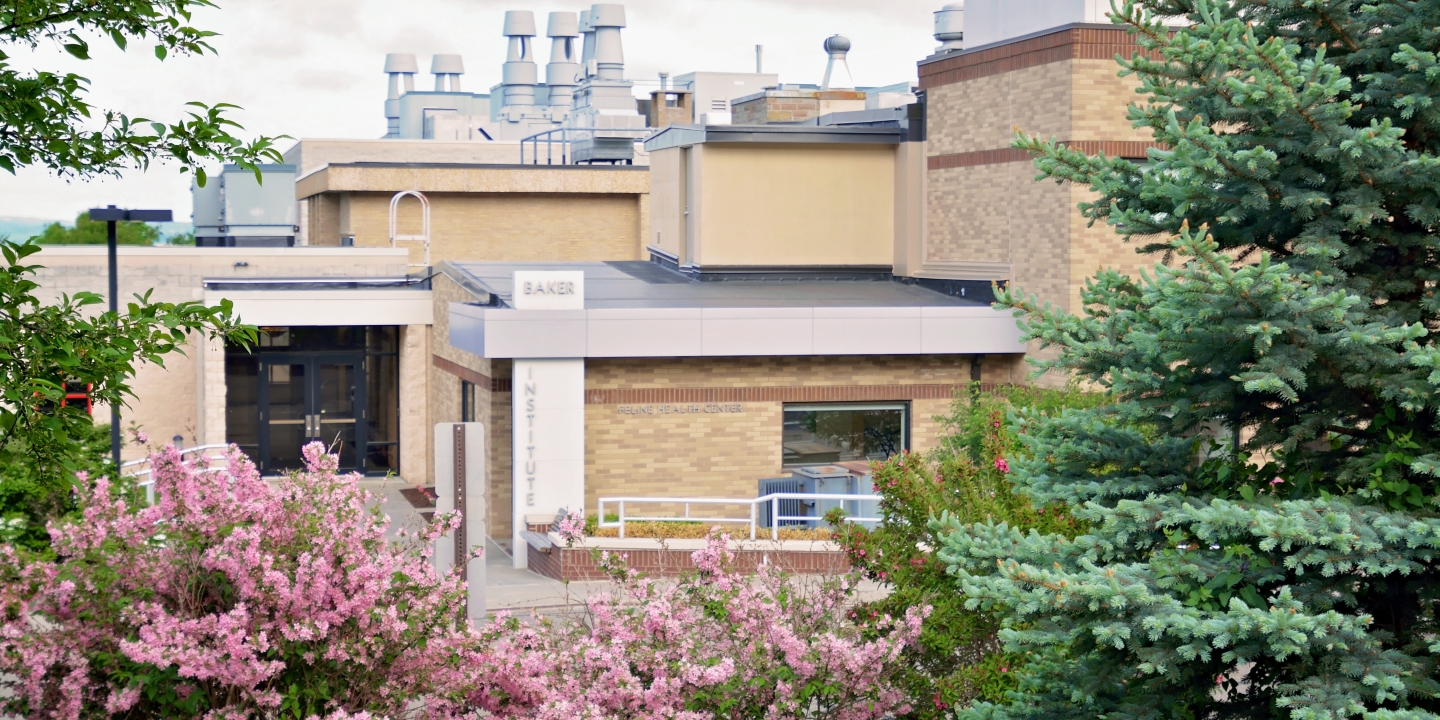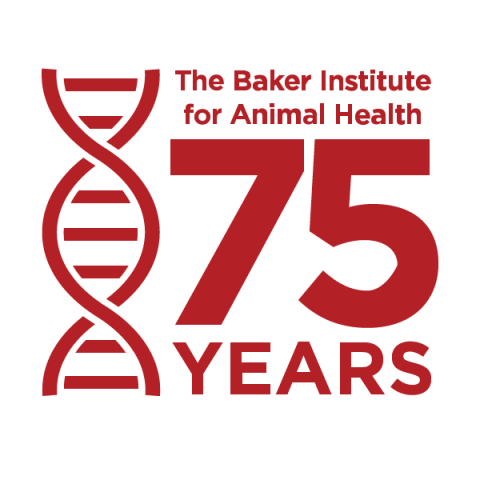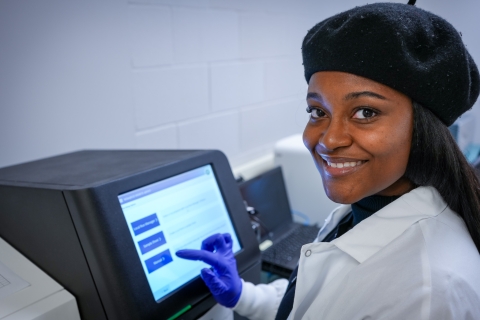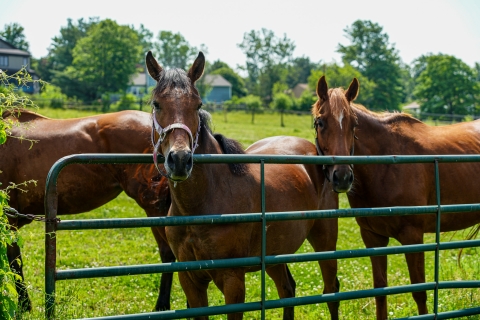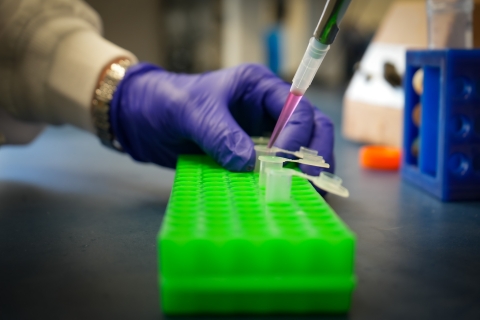The Baker Institute for Animal Health carries out discovery research in animal health to improve the lives of both humans and animals alike. Founded in 1950 on a leafy 30-acre campus in Ithaca, New York, the Institute is proud to continue building on more than a half century history of discoveries and innovation in vaccines and infectious disease, reproductive biology, cancers, immunology, and other areas. Today, Baker’s faculty and research staff continue to study the pathogens, reproduction, cancers, immune responses, and genetic disorders of dogs, cats, horses, and other animals, as well as humans, often leading the scientific journey in new and innovative directions.
Current Work and Successes
The Baker Institute serves society through scientific discoveries that open up new paths to improve animal and human health. We study infectious diseases, immunology, genetics and epigenetics, cancer, stem cells, reproduction and development, and related areas, finding new knowledge to then find its translation into tangible benefits for animal and human health. There are many ongoing projects at the Institute, including:
- Using the most advanced techniques to learn how the devastating cancer, canine hemangiosarcoma develops and to better understand the role of stem cells in breast cancers, and how breast cancer cells become resistant to the treatment of choice. This work is vital to understanding how these tumors develop and become resistant to therapy; a necessary step in the path to treat them.
- Identifying the cause of Theiler’s disease, a viral infection that causes fatal liver failure in horses. The cause of this disease has eluded researchers for more than 100 years. In collaboration with other researchers in the U.S. and Europe, a team of Baker scientists pinpointed an equine parvovirus as the cause of Theiler’s disease. The identification of this virus opens the possibility of screening blood products to prevent the spread of the disease.
- Translating the knowledge acquired while studying the processes of sperm cells leading up to fertilization, into the successful development of a male infertility diagnostic test. In addition to helping couples conceive, this type of test has the potential to help wildlife managers improve how they select, handle, and store semen from endangered species, thereby enhancing breeding efforts to avoid their extinction.
These and many other research programs at the Institute carefully lay the scientific building blocks to learn about the nature of animal, and even human diseases. These building blocks in turn open up new paths to improve the health of humans and our beloved animals. Read more about our scientists and their work on our researcher profile pages.
Baker and Cornell University
The Baker Institute is committed to cooperation and collaboration with other researchers here at Cornell University and at institutions around the world, a dedication that is central to the success of the Institute. As a part of the College of Veterinary Medicine at Cornell University, the Institute enjoys a partnership that builds on the strengths of both institutions and fosters an environment of creative cooperation. Since the Institute’s founding, Baker’s faculty have participated in active and fruitful collaborations with faculty from other units in the College of Veterinary Medicine and with other Cornell University scientists.
In addition to our ties with the College of Veterinary Medicine, Baker faculty are also active within other institutions at Cornell, including:
- Cornell Feline Health Center (a unit of the College of Veterinary Medicine)
- Cornell Richard P. Riney Canine Health Center (a unit of the College of Veterinary Medicine)
- Cornell K. Lisa Yang Wildlife Health Center (a unit of the College of Veterinary Medicine)
- Atkinson Center for a Sustainable Future
- Center for Vertebrate Genomics
Training
Training and education of veterinary scientists are an essential part of the Baker Institute’s mission, and faculty at Baker are involved in fostering the next generation of scientists at all levels. Veterinary graduate students (Ph.D. and Master’s students) and postdoctoral fellows are the main focus of the Institute’s research training, but our labs also host veterinarians undertaking a Ph.D., dual degree DVM-Ph.D. students, summer veterinary students in research programs (Leadership Program, Veterinary Investigator Program, and the Havemeyer program), undergraduate students, and even high school students. Read more about opportunities for trainees on our Opportunities page.
Students in Cornell's Veterinary Student Leadership Program and in the Havemeyer student positions spend ten weeks in the summer conducting research and participating in a variety of activities to introduce them to research and academic veterinary medicine. Those programs are coordinated by Dr. John Parker and Dr. Doug Antczak, respectively. Read more about these programs on our Opportunities page.
Scientists that have trained at the Institute have accomplished major successes in extremely diverse environments. From Chief Scientific Officer at a major biotech firm to mentoring the next generation of researchers, one thing all of our trainees have in common is their ongoing dedication to advancing our understanding of animal and human health. Read more about our past trainees and what they’ve been working on since their time at the Institute.



